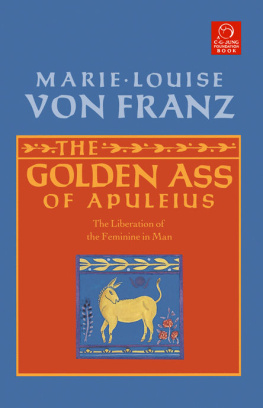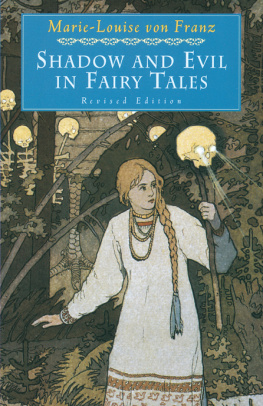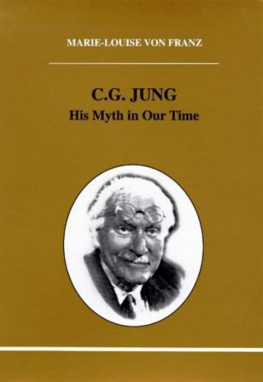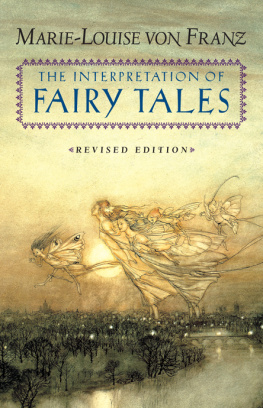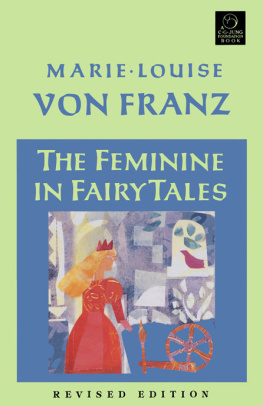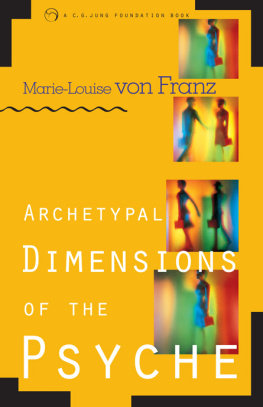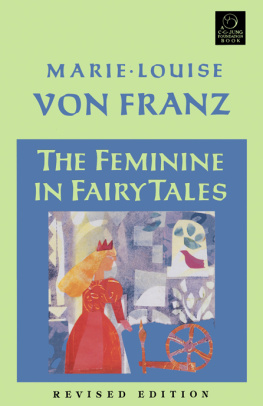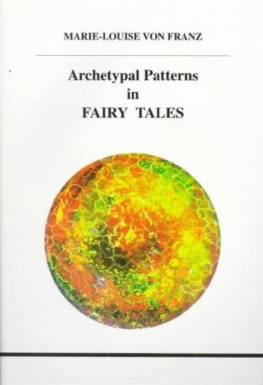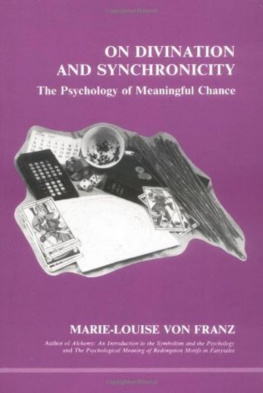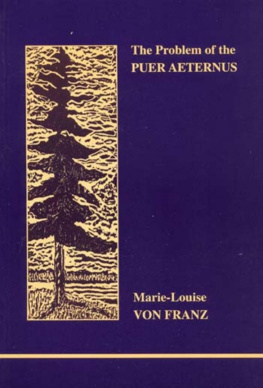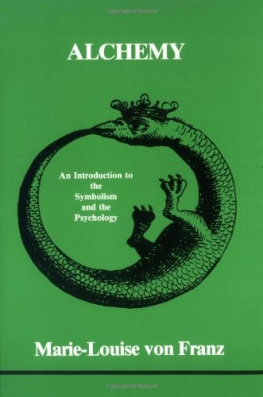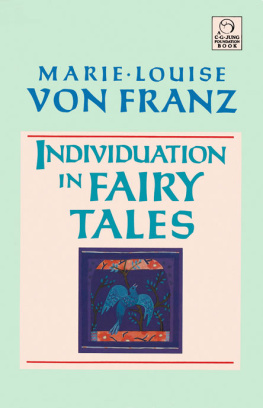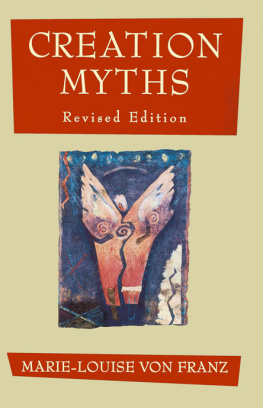Marie-Louise von Franz - The Golden Ass of Apuleius: The Liberation of the Feminine in Man
Here you can read online Marie-Louise von Franz - The Golden Ass of Apuleius: The Liberation of the Feminine in Man full text of the book (entire story) in english for free. Download pdf and epub, get meaning, cover and reviews about this ebook. year: 1970, publisher: Shambhala, genre: Religion. Description of the work, (preface) as well as reviews are available. Best literature library LitArk.com created for fans of good reading and offers a wide selection of genres:
Romance novel
Science fiction
Adventure
Detective
Science
History
Home and family
Prose
Art
Politics
Computer
Non-fiction
Religion
Business
Children
Humor
Choose a favorite category and find really read worthwhile books. Enjoy immersion in the world of imagination, feel the emotions of the characters or learn something new for yourself, make an fascinating discovery.
- Book:The Golden Ass of Apuleius: The Liberation of the Feminine in Man
- Author:
- Publisher:Shambhala
- Genre:
- Year:1970
- Rating:3 / 5
- Favourites:Add to favourites
- Your mark:
- 60
- 1
- 2
- 3
- 4
- 5
The Golden Ass of Apuleius: The Liberation of the Feminine in Man: summary, description and annotation
We offer to read an annotation, description, summary or preface (depends on what the author of the book "The Golden Ass of Apuleius: The Liberation of the Feminine in Man" wrote himself). If you haven't found the necessary information about the book — write in the comments, we will try to find it.
Marie-Louise von Franz: author's other books
Who wrote The Golden Ass of Apuleius: The Liberation of the Feminine in Man? Find out the surname, the name of the author of the book and a list of all author's works by series.
The Golden Ass of Apuleius: The Liberation of the Feminine in Man — read online for free the complete book (whole text) full work
Below is the text of the book, divided by pages. System saving the place of the last page read, allows you to conveniently read the book "The Golden Ass of Apuleius: The Liberation of the Feminine in Man" online for free, without having to search again every time where you left off. Put a bookmark, and you can go to the page where you finished reading at any time.
Font size:
Interval:
Bookmark:
Sign up to receive news and special offers from Shambhala Publications.

Or visit us online to sign up at shambhala.com/eshambhala.

A C. G. JUNG FOUNDATION BOOK
The C. G. Jung Foundation for Analytical Psychology is dedicated to helping men and women grow in conscious awareness of the psychological realities in themselves and society, find healing and meaning in their lives and greater depth in their relationships, and live in response to their discovered sense of purpose. It welcomes the public to attend its lectures, seminars, films, symposia, and workshops and offers a wide selection of books for sale through its bookstore. The Foundation also publishes Quadrant, a semiannual journal, and books on Analytical Psychology and related subjects. For information about Foundation programs or membership, please write to the C. G. Jung Foundation, 28 East 39th Street, New York, NY 10016.
The Golden Ass of Apuleius
THE LIBERATION OF THE FEMININE IN MAN
MARIE-LOUISE VON FRANZ
Revised Edition

SHAMBHALA
Boulder
2017
SHAMBHALA PUBLICATIONS, INC.
4720 Walnut Street
Boulder, Colorado 80301
www.shambhala.com
1970, 1980, 1992 by Marie-Louise von Franz
All rights reserved. No part of this book may be reproduced in any form or by any means, electronic or mechanical, including photocopying, recording, or by any information storage and retrieval system, without permission in writing from the publisher.
Cover art by Roberta Arenson
LIBRARY OF CONGRESS CATALOGING-IN-PUBLICATION DATA
Franz, Marie-Louise von, 1915
The golden ass of Apuleius: the liberation of the feminine in man I Marie-Louise von Franz.Rev. ed.
p. cm.
A C. G. Jung Foundation book.
eISBN 9780834840829
ISBN 9781570626111
1. Apuleius. Metamorphoses. 2. ApuleiusKnowledgePsychology. 3. Femininity (Psychology) in literature. 4. Archetype (Psychology) in literature. 5. Metamorphosis in literature. 6. Sex role in literature. 7. Men in literature. I. Title.
PA6217.F7 1990 89-43309
873.01dc20 CIP
BVG01
CONTENTS
This book is neither a historical nor a literary essay. It represents an attempt to elucidate and illustrate the problem of what C. G. Jung called the anima: that is, the feminine aspect of a mans psyche. The book originated in a series of lectures I gave at the C. G. Jung Institute in Zurich in 1966. Instead of using case material, I chose this novel of an ancient author because it illustrated the anima problem in all its depth and in a way which is still valid for modern man.
The text of this book has almost suffered the fate of Lucius, the hero of Apuleiuss story. In the various former editions, well-meaning editors improved on the style so much that the meaning that I wanted to express got more and more obfuscated and even partly distorted. In this revised edition I have tried to restore the original text and enlarge it with some new passages. I want to express my thanks to Dr. Manolis Kennedy for having translated the additions made in the German edition and also to Miss Deirdre Bischofberger for the difficult typing. My greatest gratitude, however, goes to Dr. Vivienne Mackrell, without whose daily support and valued suggestions I could not have fulfilled my work.
This celebrated novel by Apuleius of Madaura has always been the object of contradictory evaluations. There are, we think, many different reasons for this: some are inherent in the composition and the sources of the work itself, while others come from the personality of the author.
This Latin text from the second century A.D. has baffled commentators, for it seems to have been written according to two plans. It tells one main story, that of Lucius and his transformations, interspersed with a number of tales which, from a purely rational and superficial point of view, do not appear to have much in common with the adventures of the hero. What we know of the novels background explains and confirms this impression of duality, for it is not an entirely personal creation. The author was inspired by a lost text attributed to Lucius of Patrai, and the text itself was taken from a destroyed original Greek text that had also served as a model for The Ass, a novel written by a pseudo-Lucian. There was thus a collection of novels by various authors which later disappeared and which are thought to have been in the style of Boccaccios Decameron or Chaucers Canterbury Tales. All these earlier collections contained neither the tale of Amor and Psyche nor the initiation into the Isis mysteries that are so important in Apuleiuss book. Apuleius has not only added two significant passages but has probably also transformed, at least partially, the original stories to adapt them to their new context. In spite of using many older stories, Apuleius has actually created a completely new book with a completely new inner message.
From a literary standpoint, one will notice that the work is complicated by its affected style and its many plays on words. Knowing nothing of its cultural background, one would think its language to be that of a neurotic, but it simply corresponds to the so-called Milesian style, which Apuleius probably acquired in the course of his studies. This seems to me to explain in part the conscious-unconscious duality of the composition.
This novel, as I have said, has had a considerable amount of commentary, ranging from extreme admiration to complete scorn. According to some authors, Apuleius does little more than compile a poor collection of anecdotes, already known for the most part, while the whole of the work seems to be no more than satire or frivolous amusement. It is to his credit that Karl Kernyi, who dedicated the major part of his study to the story of Amor and Psyche, Merkelbach, however, did not analyze the book in its entirety. One needs the key of Jungian psychology and knowledge of the unconscious in order to follow the inner process of psychic development which the author describes in his book. It then reveals itself to be a completely coherent whole.
In some older translations, a good number of the works erotic anecdotes are omitted. Some modern versions, on the other hand, have preserved the sexual passages but have suppressed the initiation mysteries, considering them to be a useless addition that does not correspond to the spirit of the rest of the work. Erudite authors have even attempted to prove that the last book, the eleventh, the initiation into the Isis mysteries, had been added perhaps by another author or by Apuleius himself in a later part of his life.
There we touch on the most difficult problem of the proximity of sexual passion and its accompanying spiritual, religious experience. On the one hand, many differentiated religions stress the contrast of sexuality and spirituality, as the existence of many ascetic and monastic institutions proves. On the other hand, however, the orgiastic character of numerous religious rituals proves that the deepest root of sexuality and religious ecstasy seems to be one. It is also well known that many Christian saints lived a riotous life before their conversion. Apuleiuss work contains both poles of these opposites and sheds new light on this fundamental problem.
Another source of difficulty which troubles most commentators is that, ignoring the psychology of the unconscious, they suppose that Apuleius consciously introduced all the symbolic allusions present in the novel. This, as I said earlier, does not seem probable. I am convinced that Apuleius intentionally slipped in many symbolic ideas, but that others flowed unconsciously from his pen. Where Apuleius consciously placed certain symbolic motifs in his story, one could be justified in treating them allegorically, in the Platonic sense of the term: as a profound philosophical significance hidden beneath the symbolic image. Such changes are abrupt only in appearance, and thanks to depth psychology, we can watch their preparation in the unconscious. It is a common occurrence in analytical practice to see the appearance in dreams of symbolic themes tending toward a psychic development often not realized for several months, or even years. In certain cases of neurotic psychic dissociation, it is common for a subject to lead two lives: the one conscious, on the surface, and another which is secretly developed on a deeper unconscious level. Conversion corresponds to the moment at which the two unite.
Next pageFont size:
Interval:
Bookmark:
Similar books «The Golden Ass of Apuleius: The Liberation of the Feminine in Man»
Look at similar books to The Golden Ass of Apuleius: The Liberation of the Feminine in Man. We have selected literature similar in name and meaning in the hope of providing readers with more options to find new, interesting, not yet read works.
Discussion, reviews of the book The Golden Ass of Apuleius: The Liberation of the Feminine in Man and just readers' own opinions. Leave your comments, write what you think about the work, its meaning or the main characters. Specify what exactly you liked and what you didn't like, and why you think so.

